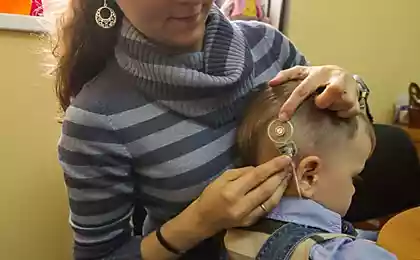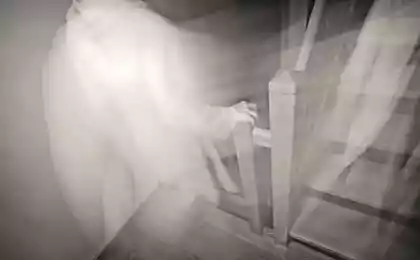1301
Girl after the holiday began to hear in my head the strange sounds
When 27-year-old Harris Rochelle from Derby returned from a holiday in Peru, she thought that the cause of her headaches began way back to the UK.

But a few hours later half of her face beginning to hurt badly, and she began to hear in my head strange scratching sounds. The next morning Rochelle woke up and found her pillow soaked with liquid from the ear.
The woman became the hero of a new documentary channel Discovery, which is called "Bugs, bites and parasites," the authors who follow the work of specialists, colliding with patients traveling abroad, and on his return complaining of various mysterious symptoms.
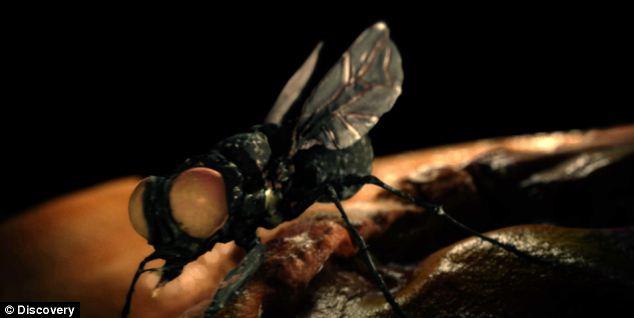
Shortly after returning to the UK Rochelle visited the emergency department at the Royal Derby Hospital, as began to suspect that her health problems more serious than she had expected. Initially, doctors were not concerned about her symptoms and suggested that they were caused by minor infections of the ear, or the bite of an infected mosquito.
To further investigate Raschel was sent to the ENT vrachts to exclude more sinister problem, but an expert who examined the woman's ear, made an unpleasant discovery. In the ear canal of the patient, he found a small hole, and said that further research is needed to find out what was going on.
After nearly an hour inspection, which took place in silence, Rochelle, and her mother, who was accompanied by a girl, ask your doctor to determine whether he was diagnosed.
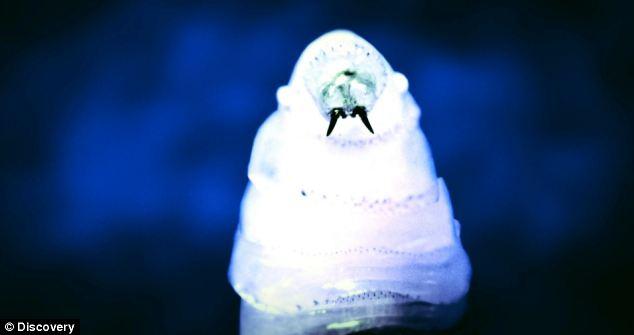
"My mother asked the doctor:" You can say that's wrong with her? ", To which the doctor said that he would like to talk with the registry before you announce your suggestions to us - says Rochelle. - But my mother continued to insist, and then the doctor said in my ear larvae. After these words, I immediately burst into tears ».
Doctors tried to pull the larvae from the ear of women, but the deeper physicians penetrated into the ear, the more they retreated to the head Rochelle.
"I was very afraid that they will be in my brain," - says the girl.
Doctors performed emergency brain scan Rochelle to find out how much her mind larvae, and where they are hiding, as was the risk that they migrate to the brain. If the larvae reached the girl's brain, they could provoke meningitis or deadly bleeding. In addition, the larvae can eat one of her facial nerve that would paralyze the girl's face.
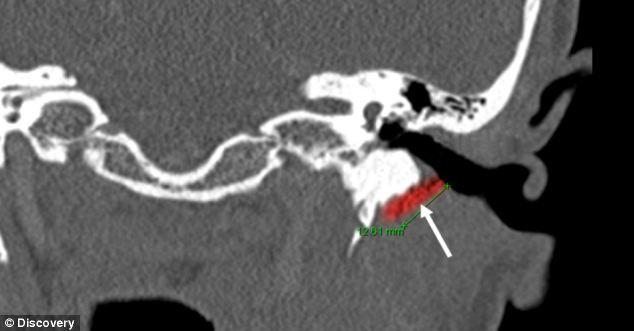
Fortunately, imaging revealed no damage the eardrum or the facial nerve. To kill the larvae, doctors fill the ear canal Rochelle olive oil, but the next day were surprised to find that they are still alive. They managed to remove two of the larvae, but were still concerned that the inside could be still.
Having studied the girl's ear with a microscope and mirrors, surgeons were shocked by what was found. When they penetrated further into the ear, they found a large accumulation of wriggling larvae. As demonstrated by further study, in the ear Rochelle settled eight large larvae. Then they were immediately sent to the laboratory for analysis where it was found that eggs laid in the girl's ear fly kind Apotsefalus.
Subsequently Rochelle raskazala he remembers as being in Peru, she went through a swarm of flies and a fly flew into one of her ear. The woman immediately drove off the insect and never would have thought that a fly had time for a few seconds to put the ear eggs.

But a few hours later half of her face beginning to hurt badly, and she began to hear in my head strange scratching sounds. The next morning Rochelle woke up and found her pillow soaked with liquid from the ear.
The woman became the hero of a new documentary channel Discovery, which is called "Bugs, bites and parasites," the authors who follow the work of specialists, colliding with patients traveling abroad, and on his return complaining of various mysterious symptoms.

Shortly after returning to the UK Rochelle visited the emergency department at the Royal Derby Hospital, as began to suspect that her health problems more serious than she had expected. Initially, doctors were not concerned about her symptoms and suggested that they were caused by minor infections of the ear, or the bite of an infected mosquito.
To further investigate Raschel was sent to the ENT vrachts to exclude more sinister problem, but an expert who examined the woman's ear, made an unpleasant discovery. In the ear canal of the patient, he found a small hole, and said that further research is needed to find out what was going on.
After nearly an hour inspection, which took place in silence, Rochelle, and her mother, who was accompanied by a girl, ask your doctor to determine whether he was diagnosed.

"My mother asked the doctor:" You can say that's wrong with her? ", To which the doctor said that he would like to talk with the registry before you announce your suggestions to us - says Rochelle. - But my mother continued to insist, and then the doctor said in my ear larvae. After these words, I immediately burst into tears ».
Doctors tried to pull the larvae from the ear of women, but the deeper physicians penetrated into the ear, the more they retreated to the head Rochelle.
"I was very afraid that they will be in my brain," - says the girl.
Doctors performed emergency brain scan Rochelle to find out how much her mind larvae, and where they are hiding, as was the risk that they migrate to the brain. If the larvae reached the girl's brain, they could provoke meningitis or deadly bleeding. In addition, the larvae can eat one of her facial nerve that would paralyze the girl's face.

Fortunately, imaging revealed no damage the eardrum or the facial nerve. To kill the larvae, doctors fill the ear canal Rochelle olive oil, but the next day were surprised to find that they are still alive. They managed to remove two of the larvae, but were still concerned that the inside could be still.
Having studied the girl's ear with a microscope and mirrors, surgeons were shocked by what was found. When they penetrated further into the ear, they found a large accumulation of wriggling larvae. As demonstrated by further study, in the ear Rochelle settled eight large larvae. Then they were immediately sent to the laboratory for analysis where it was found that eggs laid in the girl's ear fly kind Apotsefalus.
Subsequently Rochelle raskazala he remembers as being in Peru, she went through a swarm of flies and a fly flew into one of her ear. The woman immediately drove off the insect and never would have thought that a fly had time for a few seconds to put the ear eggs.









